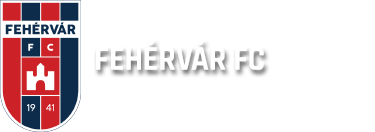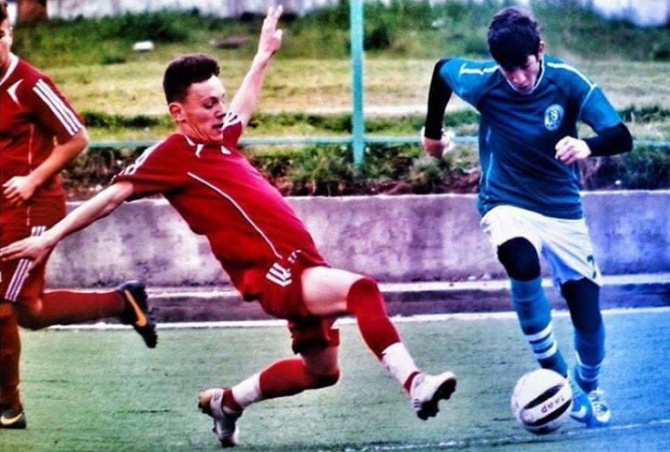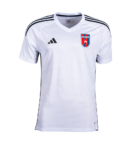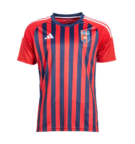Ajánld ismerősödnek!
Az ajánlást sikeresen elküldtük!
We spoke at length to our Kosovo striker about the difficult circumstances he grew up in, how he became a footballer and what gives him extra strength in matches.
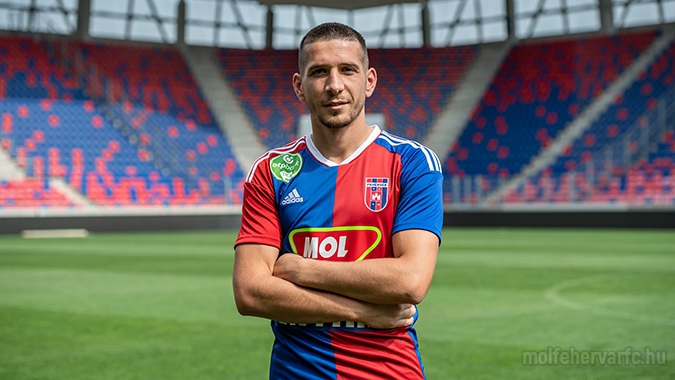
- Tell us a bit about your childhood, how you grew up and how you became a footballer?
I grew up in very difficult circumstances. I have two brothers, so my parents had to take care of three children. My father worked 12 hours a day, but he was only paid 15-20 euros a day, so he had to support the family. I loved playing football with my friends as a child, but I didn't have the opportunity to go to training sessions, let alone have my own football boots. In the village where we lived, there was a football coach who knew I liked football and was aware of our difficult situation. He was a coach in a neighbouring town and offered me the chance to play for his team on weekends if I wanted to and not have to go to training sessions during the week. Of course I was very happy about the opportunity. Back then, my days consisted of going to school in the mornings and then after school I would go to the edge of the village and look after ten cows until dark. I was always looking forward to the weekends, because then I could go and play football, but I also tried to spend the afternoons when I had to look after the cows in a useful way, so I used to run a lot in the hilly areas where the animals grazed. Running was my daily exercise. For about a year, my days were like that, school and work during the week and football on the weekends. Later, when they saw that I was good at football, they gave me the opportunity to play for Arsenal Kosovo in the capital Pristina, but I had to go there for training. The capital was about a three-hour bus ride away, so I had to travel at least six hours a day after school to train. Needless to say, my family made huge sacrifices for me to travel to Pristina every day, as it cost me 10 euros a day to take the bus, which my father's salary could not cover. But my parents did not give up, sometimes borrowing money from relatives and friends so that I could travel to Pristina to train. I was aware of the sacrifices my parents had made for me, so I took every training session extremely seriously, never cheating a single push-up or cutting my laps when I had to run.
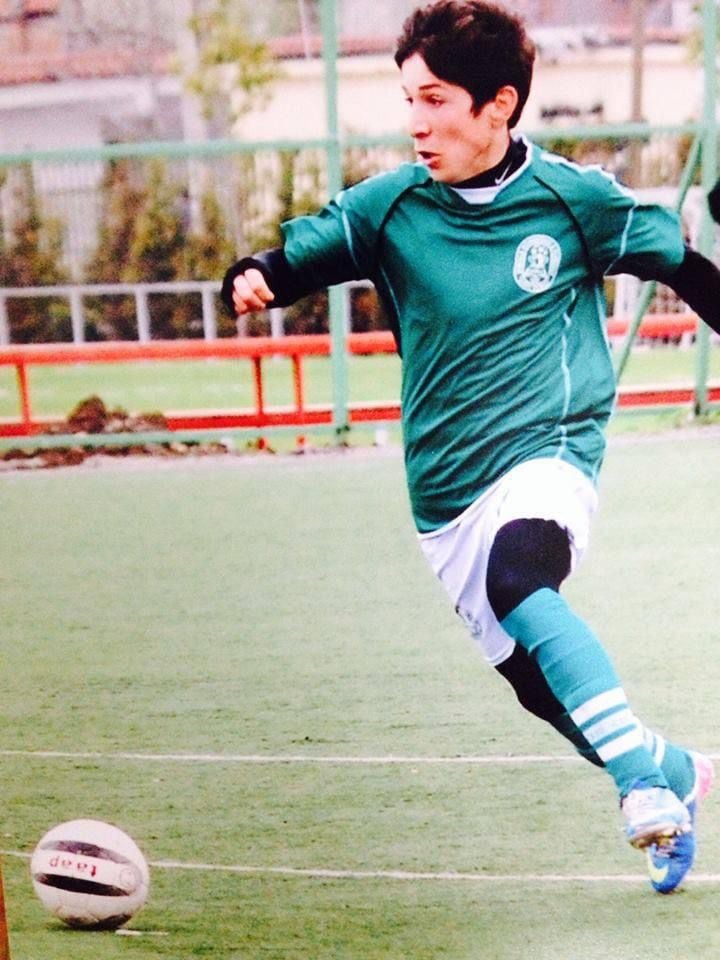
(photo: Lirim Kastrati archive)
I was almost 15 when we played a training match against the Albanian age group team Shkëndija Tiranë and as I was playing well against them - I scored two goals and provided two assists - the opportunity came to me to join them. There was a kind of academy waiting for me in Tirana, which made it easier for me in terms of not having to travel six hours a day by bus, so I accepted the opportunity with the support of my family. At 15, I was all alone, not only in a new city, but also in a new country. There were many foreigners at the academy, with four players in each room, but it didn't bother me at all, I was happy that my parents didn't have to spend all their money on me. We studied at the local school in the mornings and then we had training every afternoon. Of course, it was difficult to be away from my parents, my family and friends at such a young age, but I knew that football was the only way out of poverty and I was very motivated by that because I wanted to give back to my parents everything they had given me. Even during my years at the academy, my dad supported me financially, giving me at least 50 euros a month, which I spent on food and my accommodation fees at the academy. I was in Tirana for three years, I think I improved a lot there, I played a lot of good matches and the academy made some recordings of those matches. I put together a little video of them and uploaded it on YouTube without any real purpose, but that's how managers found me.
(photo: Lirim Kastrati archive)
- With their help, you got transferred to Croatia?
Yes, one of the managers, who was the most persistent, promised to arrange all the necessary documents for me in Croatia, which is how I ended up at Lokomotiva Zagreb. After the first training session, the president came to me and told me that he could offer me a semi-professional contract. To be honest, I didn't care about the amount, I was happy to accept. The important thing for me was to play football. Unfortunately, I was not able to play in the league for the first three months for administrative reasons. I went to the gym three times a day, trained with the team twice a day and ran on my own in the evenings. It was a difficult time for me, but I didn't give up. I signed for Lokomotiva in the summer of 2017, but it was six months later, in February 2018, that I was able to play for the first time. I played my first professional match against NK Istra, the game wasn't bad, but we lost 1-0. My next game was an away league game against Dinamo Zagreb, which we won 4-1. I won a penalty and scored two goals, the first league win for Lokomotiva at the home of Dinamo. I will never forget that match.
I think they followed my career at Dinamo Zagreb from then on and I was finally signed in the winter of 2020, but I spent the spring season on loan at Lokomotiva and at the end of the season I was selected in the dream team of the season, so I was already playing for Dinamo in the 2020/2021 championship. The first couple of months were great, I played a lot, I was playing well, but then in the second half of the season I got less chances, which of course I wasn't happy with. I made it clear to the management that if they didn't expect me to play, they should let me go because I was too young to be on the bench. Eventually, Legia Warsaw made an offer that was good for the club and good for me, so I transferred to Poland, but things did not work out as I had planned.
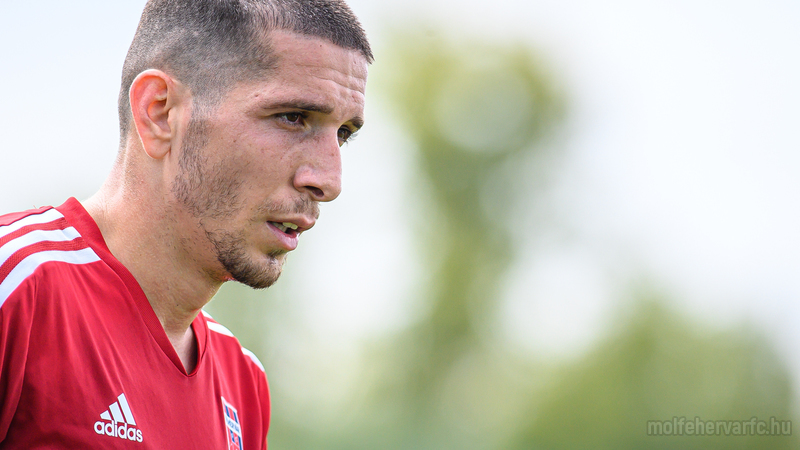
- So you said goodbye to Poland and moved to Vidi.
In simple terms, that's how it happened, but you have to know that I had several serious approaches this summer, but of all the clubs, Vidi was the one I liked the most. Before I accepted the club's offer, I spoke to István Sallói, the sporting director, and Michael Boris, the head coach, and I was very pleased that they both wanted me to come to Székesfehérvár. One of the most important things for a player is to feel trust. In addition to the two coaches, I also spoke to my former team-mate Myrto Uzuni about Hungarian football and Vidi, and he had nothing but good things to say about both the league and the Székesfehérvár team. Since then, I have studied the history of the club, I know what great results the team has achieved, and I am proud to wear the shirt of this club in the future.
- What are your first personal experiences of the club and the city?
After the first few days I was convinced that I made the right decision when I accepted Vidi's offer. The conditions were excellent, the team-mates quickly welcomed me, and the quality and standard of the training was international level. I've also managed to discover Székesfehérvár to some extent, I was very captivated by the beautiful city centre and my girlfriend and I didn't think for a minute about moving here. We have a beautiful five-month-old daughter, and I feel like we are in the best place right now in every way.
- When you were younger, did you have a favourite footballer who you looked up to as a role model?
Not only when I was younger, but still today, Cristiano Ronaldo is the player I look up to as a role model. His career has been a great inspiration for me because, like me, he started from zero and had to work very hard for everything. Most people only see the glamour in footballers, but few know the journey that led to it.
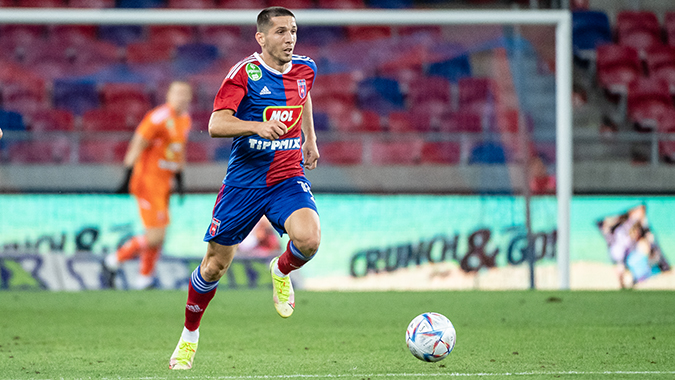
- What are your dreams in football that you would like to achieve?
I don't dream, I have goals and I fight hard for them. My main goal now is to help Vidi with as good a game as possible, with goals and assists. Like all footballers, I would like to play in one of the top five European leagues one day. The Bundesliga and La Liga are probably the closest to my heart, but if a club in England, France or even Italy offer me a place in their league, I won't be dissatisfied (laughs). But that's still a long way off, but I know how far I've come and I've realised along the way that if you're persistent and believe in yourself, you can achieve your goals. But as I said before, I'm not thinking about the distant future, I want to do my current tasks to the best of my ability.
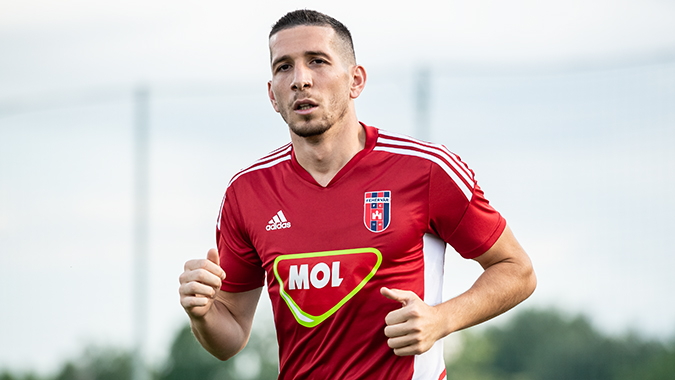
- Whatever your career path, I think your family is already very proud of where you've come from. Does that give you extra strength on the pitch?
Yes, that's right, my whole family is happy to see how much I have achieved by the age of 23. They are proud of me and it makes me feel good and yes, you could say it gives me an extra strength on the pitch. But it's not just my family who are proud of me, it's the people I lived with in the same village as a child. When I moved to Croatia, they watched my first matches on a big screen in the centre of the village. It's a really great feeling that every time I go home, people always call me on the street, congratulate me and tell me how proud they are of me. I don't want to exaggerate, but I think I've given away at least a hundred shirts to people back home, I can't wait to visit again and now I can bring home a Vidi shirt with my name on it as a present..
 Ellenfél-les: Az ESMTK ellen lép pályára csapatunk szombaton
2023. Szeptember 15.
Ellenfél-les: Az ESMTK ellen lép pályára csapatunk szombaton
2023. Szeptember 15.
15:00 órakor lépünk pályára a MOL Magyar Kupa 3. fordulójában.
 Bartosz Grzelak: "Biztos, hogy 100%-os erőbedobásra lesz szükségünk"
2023. Szeptember 15.
Bartosz Grzelak: "Biztos, hogy 100%-os erőbedobásra lesz szükségünk"
2023. Szeptember 15.
Csapatunk ESMTK elleni idegenbeli MOL Magyar Kupa-mérkőzése szombaton 15 órakor kezdődik.
 Edzőmeccs a Kozármisleny ellen
2023. Szeptember 07.
Edzőmeccs a Kozármisleny ellen
2023. Szeptember 07.
2-1-re nyertek a vendégek Sóstón.
 Gergényi Bence a Vidiben!
2023. Szeptember 06.
Gergényi Bence a Vidiben!
2023. Szeptember 06.
Klubunk megvásárolta a 25 esztendős balhátvéd játékjogát a ZTE FC-től.
 Három vasárnapi meccs következik
2023. Szeptember 06.
Három vasárnapi meccs következik
2023. Szeptember 06.
Elkészült az OTP Bank Liga 7-9. fordulójának sorsolása.
 Irány Pesterzsébet!
2023. Szeptember 04.
Irány Pesterzsébet!
2023. Szeptember 04.
Szurkolói- és jegyinformációk az ESMTK elleni MOL Magyar Kupa-meccsünkre.



















